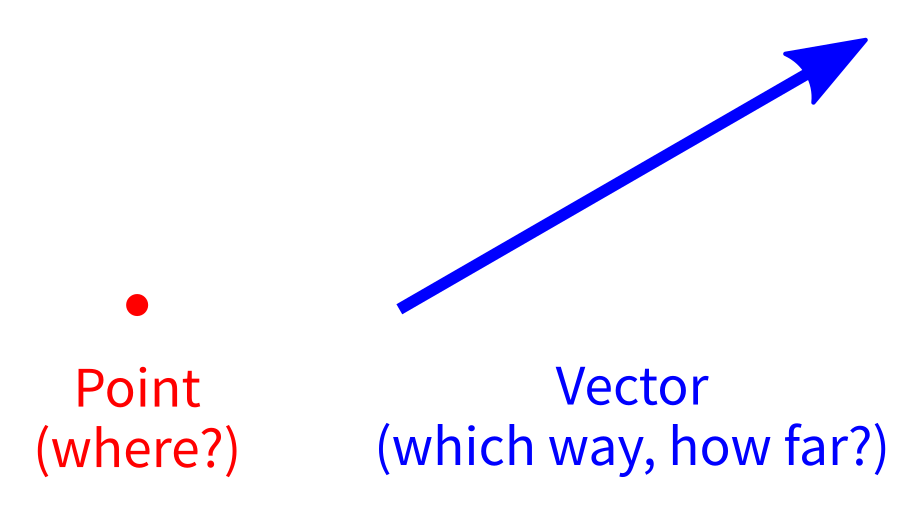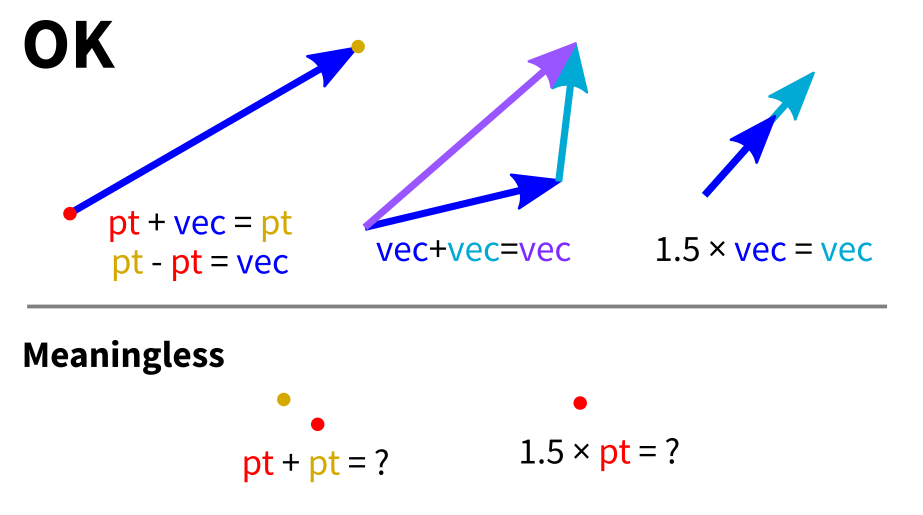Lecture 4
Object-oriented Programming
Operator overloading
MCS 275 Spring 2024
Emily Dumas
Overloading
Adding special methods lets a custom class work with built-in operations like +, *, len, abs, ...
These methods get called automatically when we apply addition, multiplication, etc., to instances.
Some special methods
| Operation | Special method | |
|---|---|---|
A==B | A.__eq__(B) | |
A+B | A.__add__(B) | |
A-B | A.__sub__(B) | |
A*B | A.__mul__(B) | |
A/B | A.__truediv__(B) | |
A**B | A.__pow__(B) |
List of many more in the Python documentation.
More special methods
| Operation | Special method | |
|---|---|---|
str(A) | A.__str__() | |
len(A) | A.__len__() | |
abs(A) | A.__abs__() | |
bool(A) | A.__bool__() | |
A[k] | A.__getitem__(k) | |
A[k]=v | A.__setitem__(k,v) |
Our main example
Point2— point in the plane (a location in 2D)Vector2— vector in the plane (e.g. the displacement between two points)
This is all going in an example module oop/plane.py in the course code repo.

Supported operations

Language features used
isinstance(obj,classname)-- returns bool indicating whetherobjis an instance of the named class (or subclass thereof)NotImplemented-- Special value that operators should return if the operation is not supported
__add__ & __radd__
In evaluating A+B, Python first tries
A.__add__(B)NotImplemented), it will try
B.__radd__(A)There are "reflected" versions of all the binary operations (e.g. __rmul__).
Overloading danger
Overloading is best used when a function or operator has a clear, natural meaning for a class.
If used too much or in unintuitive ways, it makes programs harder to understand.
Singletons
When a class is designed so that it only ever has one instance, the class (or the only instance of it) is called a singleton.
We've seen two of these so far:
None, the only instance ofNoneTypeNotImplemented, the only instance ofNotImplementedType
References
- I discussed overloading in MCS 260 Fall 2021 Lecture 26.
- See Lutz, Chapter 30 for more information about overloading.
- Lutz, Chapters 26-32 discuss object-oriented programming.
Revision history
- 2023-01-23 Finalization of the 2023 lecture this was based on.
- 2024-01-16 Initial publication.